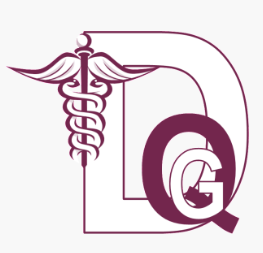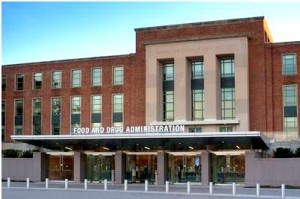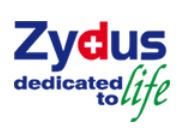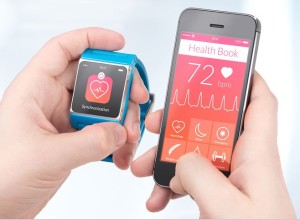- Drug approvals at 19-year high belie industry challenges (reuters.com)
2015 was a good year for innovation in medicine with the Food and Drug Administration approving 45 novel drugs, four more than in 2014 and the most since the all-time record of 53 set in 1996...the European Medicines Agency recommended 93 new products, including generics, up from 82 in 2014...the prospect for further progress in 2016, the pharmaceuticals industry faces challenges, with increased political focus on drug pricing having punctured both biotech and specialty pharma valuations in recent months...The rapid pace of new approvals reflects accelerated review times by regulators, who want to get life-saving treatments to patients, especially in cancer, as well as an improved scientific understanding of diseases...Full drug pipelines at many companies suggest the strong rate of new drug launches is likely to continue for a while yet, with IMS Health forecasting a total of 225 new drug approvals between 2016 and 2020.
- DEA eases requirements for natural cannabis-derived drug research (reuters.com)
Drug Enforcement Administration...relaxed some restrictions on research evaluating cannabidiol, an extract of the marijuana plant, for medicinal use...The modifications will ease some requirements imposed by the Controlled Substances Act on possession of cannabidiol (CBD) for a specific Food and Drug Administration approved research protocol...researchers who expanded the scope of their studies and required more CBD than initially approved had to request, in writing... the changes...a previously registered CBD clinical researcher who is granted a waiver can readily modify the protocol and continue research seamlessly. (waiver effectively removes a step from the approval process)...A handful of companies are developing cannabis-derived drugs. Pioneering the effort is Britain's GW Pharmaceuticals, which is slated next year to deliver the results of four late-stage U.S. studies of its botanical pot-based epilepsy treatment...INSYS Therapeutics Inc and Zynerba Pharmaceuticals Inc are working on much earlier stages of development with synthetic cannabis for a number of disorders.
- Nonprofit vows to lower generic drug costs (bostonglobe.com)
...in this Central Massachusetts town (Blackstone Valley), a small team of drug industry veterans has launched a startup (Drew Quality Group) to counter...price gougers by making affordable generic medicines to treat critical diseases. And they’re doing it as a nonprofit...We want to create a competitor to stabilize the prices...When you end up with a single-source manufacturer, they can charge any price they want...typically have only a single producer, are in short supply either because their manufacturer is grappling with safety problems or there is no domestic supplier and an overseas producer no longer finds it profitable to make drugs to treat small numbers of patients...By operating as a nonprofit, Drew Quality won’t have to pay the same taxes a drug company does. Nor will it have to focus on cost-cutting by sending work overseas...The group wants to employ people close to home and make sure patients get access to therapies they need without being squeezed financially...And while it plans to underprice companies that have boosted prices substantially, Drew Quality will still charge enough to pay its employees and plow some money back into the business...the cost of its generic drugs will be closer to the discounted prices that were charged before companies pushed them higher.
- FDA delays proposed rule on safety warnings for generic drugs again (statnews.com)Supplemental Applications Proposing Labeling Changes for Approved Drugs and Biological Products (federalregister.gov)
For the second time, the Food and Drug Administration has delayed a controversial rule for updating generic drug labeling that would allow generic drug makers to independently update safety warnings, something only brand-name drug makers can currently do before receiving regulatory permission…the agency said the rule will be published in July 2016…The delay came amid push-back from the pharmaceutical industry, as well as some congressional lawmakers who questioned whether the agency has the authority to issue such a rule…FDA said it wants to “create parity” between brand-name and generic drug makers…generic drug makers have not been required to run tests to prove their medicines are the same as brand- name drugs and, therefore, have not had to upgrade labels with safety information…the generic trade group has argued the FDA rule could add $4 billion to the nation’s health care bill because regulatory requirements and litigation costs would eventually force manufacturers to raise prices.
- Cadila Healthcare shares plunge after FDA warns of violations (reuters.com)
Cadila Healthcare Ltd (Zydus Cadila)has received a U.S. Food and Drug Administration warning letter for violating manufacturing standards at two of its production facilities, the latest in a series of Indian companies to face such action....The warning letter cites issues with Cadila's plants in Gujarat, including at the Moraiya facility, which makes up about 60 percent of the company's total sales in the United States, its largest market...Dozens of Indian drug plants have faced warnings and bans in recent years, as the FDA improved inspections of foreign facilities. More than 40 percent of the generic and over the counter medicines available in the United States comes from Indian facilities such as Cadila's Moraiya plant...Cadila Managing Director Pankaj Patel told analysts...the FDA, during an inspection of the Moraiya plant...found deficiencies with the way the company investigated market complaints about a medicine made there...The company is working on a response to the warning letter and will then ask the FDA to reinspect both facilities...It has 15 days to respond to the FDA, as per standard procedures, after which the FDA will decide its response including whether to impose an import ban.
- Drugmaker Settles Free Speech Dispute as FDA Agrees on Label (bloomberg.com)
U.S. regulators have backed off an attempt to limit Pacira Pharmaceuticals Inc.’s promotion of its pain drug, striking an agreement that’s likely to fan the flames of debate over free speech and drug marketing...After the drugmaker filed suit citing its constitutional rights to free speech, the Food and Drug Administration agreed to let Pacira broadly promote the medication Exparel (bupivacaine), rather than limiting its sales team to talking only about its use after bunion and hemorrhoid surgeries...The painkiller, a non-narcotic shot, hadn’t been studied for use with other surgeries, such as dental or orthopedic procedures. While its FDA-approved label notes that fact, it doesn’t explicitly say the medication can only be used for surgeries that have been studied. Pacira argued that meant it could market the treatment for broader use...FDA has faced difficulty in its efforts to police drug marketing. In August, a court ruled the agency couldn’t bar Amarin Corp. from talking to doctors about unapproved uses of its fish-oil pill. While doctors are already allowed to prescribe drugs off-label, drugmakers have been restricted on promoting such uses...Drugmakers are able to give doctors information about unapproved uses if doctors specifically request it. The Amarin ruling allows pharmaceutical companies to hand out the information more widely without a request…
- The promise and peril of Ted Cruz’s plan to overhaul the drug approval process (vox.com)
Republican presidential candidate Sen. Ted Cruz and Sen. Mike Lee just introduced a new bill that would completely overhaul the Food and Drug Administration...The main idea: The senators want to expedite approvals for lifesaving drugs, give Congress space to intervene in FDA decisions lawmakers don't like, and expand the drugs and devices Americans have access to by allowing products approved in other countries onto the market...here's what the Reciprocity Ensures Streamlined Use of Lifesaving Treatments Act...would do:
- Allow for "reciprocal approval of drugs, devices and biologics" from "trusted, developed countries" like the European Union, Israel, Australia, Canada, and Japan. This means that if a drug or device is approved in one of these countries, citizens here could access it — and vice versa.
- Create a 30-day window for FDA review of lifesaving drug and device applications, in order to speed them up.
- Instruct the Health and Human Services secretary to approve a drug, device or biologic if "the FDA confirms the product is lawfully approved for sale in one of the listed countries; not a banned device by current FDA standards; there is a public health or unmet medical need for the product."
- Give Congress the power to overrule FDA decisions about promising applications for lifesaving drugs that the FDA rejected.
Right now the FDA is actually the fastest regulatory system in the world, with several expedited approval pathways for important drugs...the agency had approved 96 percent of the applications that came its way in 2015. So, again, how this new legislation — which further speeds up approvals — will solve the real reason better medicines aren't getting to patients remains to be explained.
- FDA still seems reluctant to regulate mobile health apps (medcitynews.com)
Remember when the Food and Drug Administration was going to regulate mobile health apps? The year was 2013...There was even a bill from the congressman representing Silicon Valley that aimed to tame the “Wild West” of mobile and wireless health. The House Energy and Commerce Committee even held three...days of hearings...Rep. Mike Burgess asking then-national health IT coordinator Dr. Farzad Mostashari to magically create interoperability...Now, it sounds like the FDA might almost be ready to throw its hands up and walk away...the agency circulated a draft guidance that really didn’t say much...The 2013 final version clarified policy a bit, stating that the FDA generally would focus only on mobile apps that serve as medical devices, and mostly stay away from regulating consumer technology...Earlier this year, an FDA specialist in digital health told Bloomberg that the agency would be “almost hands-off” when it comes to consumer wellness and fitness gadgets...
- FDA launches Web-based precision medicine platform for next-generation sequencing (healthcareitnews.com)FDA Launches precisionFDA to Harness the Power of Scientific Collaboration (blogs.fda.gov)
Food and Drug Administration...launched the beta version of precisionFDA, its new collaborative platform for the exploration of next-generation gene sequencing...First announced in August, the platform features more than 20 public and private sector participants…Next-generation sequencing enables researchers to compile a vast amount of data on a person's exact order or sequence of DNA...scientists can look for meaningful differences in DNA that can be used to suggest a person's risk of disease, possible response to treatment and assess their current state of health. Ultimately, what we learn about these differences could be used to design a treatment tailored to a specific individual...The hope is to grow this community and improve the usability of precisionFDA in the coming months and years...One way we'll achieve that is by placing the code for the precisionFDA portal on the world's largest open source software repository, GitHub, so the community can further enhance precisionFDA's features...
- E-mails reveal concerns about Theranos’s FDA compliance date back years (washingtonpost.com)Surprise: Theranos CEO Says Company Is Doing More Tests Than Ever (forbes.com)A comprehensive guide to Theranos’s troubles and what it means for you (washingtonpost.com)Hot Startup Theranos Has Struggled With Its Blood-Test Technology (req sub) (wsj.com)
Years before Theranos…came under harsh public scrutiny in October, a military official raised concerns that the secretive company was violating federal law…E-mail correspondence obtained by the Post reveals that an official evaluating Theranos’s signature blood-testing technology for the Department of Defense sounded the alarm in 2012 and launched a formal inquiry with the Food and Drug Administration about the company’s intent to distribute its tests without FDA clearance — a problem that has resurfaced this year, leading Theranos to temporarily stop offering almost all of its tests...In October, a Wall Street Journal investigation revealed the company was running most of its tests on devices made by other firms instead of its own “breakthrough” technology. The Journal reported that former Theranos employees and executives of Safeway had questioned the accuracy of the tests.








